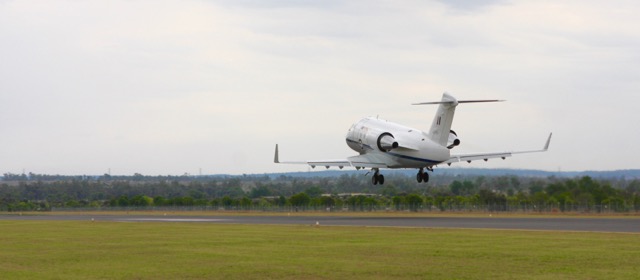
Posts about stuff relating to airports


Many Masters: CASA not the only Agency Responsible for Safety
Just a short post today* about a recent High Court of Australia decision on the topic of which safety agency should prosecute safety breaches involving an aviation organisation preparing for a flight. Quick answer: it could be an agency other than the Civil Aviation Safety Authority (CASA) depending on the circumstances of the breach.
* I don’t want to became an aviation law blog. Really, I don’t but I do enjoy ready this stuff.

Off the Hook: Kangaroo Collision Case Appeal Allowed
A little over a year ago, I wrote about a court case involving the owner of an aircraft claiming damages from an aerodrome operator after their aircraft collided with a kangaroo on landing. I was pretty proud of that post as I had exercised some newly developed court judgement reading skills. So, of course, the legal system would have to go an turn all that on its head and change its mind. It turns out that the aerodrome operator was not liable for the damage.
Let’s find out why and whether we agree with them…
Image credit: Altered photo by Scott Calleja

Missed Opportunities: We Should be Doing Better
Over the past year or so, I've written about a couple of topics that seem to have converged into this post. Airport professionalism, the application of aerodrome regulations (twice), runway strip standards and accidents were topics I recently explored and after doing so more research I stumbled across a couple of incident investigations in Australia that bring these previous articles together.

Wrong, but not as Wrong: Wellington RESA “Final” Decision
Earlier in 2017, the New Zealand Court of Appeal reversed an even earlier court decision and found that the NZ Civil Aviation Authority’s (CAA) Director had made an error in assessing the Runway End Safety Area (RESA) length requirement contain in Civil Aviation Rule Part 139 - I blogged about that decision here.
This week, the NZ Supreme Court handed down its judgement on the appeal made by the NZ CAA and Wellington Airport. Not a bad turnaround considered the length legal battles usually take.
And I guess, technically, the NZ CAA and Wellington International Airport Ltd (WIAL) lost. The appeal was dismissed and costs were awarded but the reasoning included in the judgement does provide the NZ CAA with at least a partial win.

The $200K Kangaroo
I’m not a big fan of safety tropes. They are often repeated without much thought and eventually this repetition becomes detached from the concept the trope is trying to convey. With many tropes, there are few non-trivial or non-catastrophic events that can reinforce the trope.
The saying on my mind today is “if you think safety is expensive, try having an accident”. The “accident” I often think about is something big, something catastrophic and something that happens to other people. I rarely uttered this trope because I, personally, didn’t feel the power of it.
Now, thanks to a court case in Australia, I feel the power has been returned to this saying. We know have a non-catastrophic event with quantifiable costs associated with the “safety” part and the “accident” part. Plus, I think nearly every airport safety professional out there can empathise with the operator in the case

Making Decisions is Hard: How Long Must a RESA Be?
A couple of months ago, the New Zealand Court of Appeal handed down a judgement against the NZ Civil Aviation Authority's (CAA) assessment of Runway End Safety Area (RESA) requirements stemming from their own rules. While not everyone is in to reading court decisions and pulling apart regulations, I obviously am. As such, I thought I would save you the trouble and write about it here.
Header image from Karelj.
Noun-based Regulation
The modern world is definitely in love with its noun-based activities. Each week, a paradigm-shifting approach to some human endeavour is announced with a title like value-based health care or outcome-based education. When I delve into the details, I am generally left either confused as to what they are selling or how they are different at all. Regulation is no different. Just plugging "based regulation" into Google yields, on the first page alone, principle-based, results-based, performance-based, outcomes-based and output-based regulatory approaches.

Trust & Accountability
Recently, I sat in on a presentation on a subject I know quite a bit about. I like doing this as it is typically good to get a different perspective on a familiar subject. In this instance, it wasn't so much the actual subject matter but a couple of associated topics which got stuck in my mind.

Regulation, The Final Frontier?
The week before last, I finished a 4-year stint with the aviation safety regulator. Even though I'm heading back to industry, I'm not going to stop writing this blog. I believe that the role of the national regulator is the next safety frontier (not the last ;)) and I like the idea of exploring new territory. As the industry continues to explore concepts like safety management, systems-based this, risk-based that and outcome-based whatchamacallit as well as safety culture, we are all going to come to the realisation that safety can be greatly affected (more than we ever imagined) by the approach and actions taken by a national regulator.

"Compliance Doesn't Equal Safety"
I've heard this saying quite a bit over the last few months and in at least one aspect, I agree with the statement. It tends to be true that regulations have failed to keep pace with industry. As such, blind compliance with the regulation no longer ensures an accident-free existence. So what is the solution?
Image: Tanathip Rattanatum
